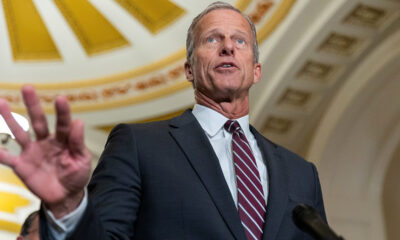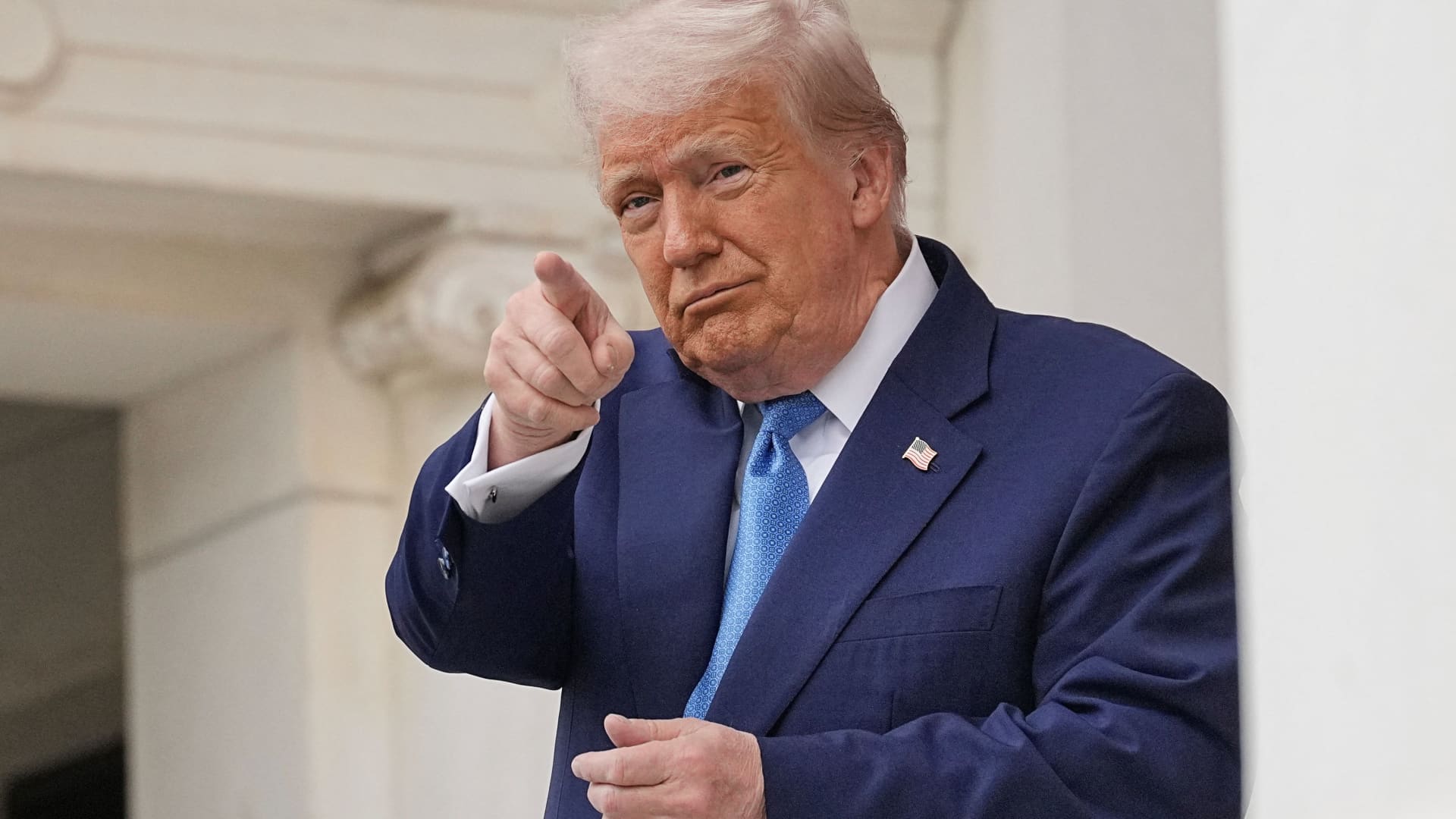The German parliament building, the Reichstag, which has been the seat of the Bundestag since 1999.
Fhm | Moment | Getty Images
U.S. tariffs could push Europe’s largest economy into a recession, German central bank President Joachim Nagel warned Thursday, as Berlin faces a debate over the potential overhaul of its fiscal policies.
“Now we are in a world with tariffs, so we could expect maybe a recession for this year, if the tariffs are really coming,” Nagel, who leads the Bundesbank and serves as a member of the Governing Council of the European Central Bank, said during a BBC podcast interview.
Global tariffs are set to exacerbate the existing symptoms of what Nagel described as Germany’s “stagnating economy,” which has contracted for two consecutive years amid the combined aftershocks of the Covid-19 pandemic and the energy crisis triggered by Western sanctions on Russia for its three-year invasion of Ukraine.
Mere months after inflation and interest rates began descending in the euro zone last year, returning U.S. President Donald Trump’s tariff-heavy strategy, aimed at reducing his country’s perceived deficits with trade partners, is rattling markets – and fracturing Europe’s traditionally strong relationship with its transatlantic ally.
On Wednesday, the European Union retaliated against Trump’s 25% duties on steel and aluminum imports that came into effect that day with a spate of counter-tariffs set to affect 26 billion euros ($28.26 billion) worth of U.S. goods, starting in April.
“This is not a good policy,” Nagel said, bemoaning the “tectonic changes” now facing the world at large. “I hope that there is understanding within the Trump administration that the price that has to be paid is the highest on the side of the Americans.”
As the world’s third-largest exporter, according to 2023 data, and numbering the U.S. as the foremost importer of its goods, Germany is especially vulnerable to tariffs, which could erode its automative and machinery sectors.
Cripplingly, exports of good and services accounted for 43.4% of Germany’s gross domestic product in 2023, according to World Bank data, although federal statistics office data indicate its typically high foreign trade surplus most recently slimmed to 16 billion euros in January, compared with 20.7 billion euros in December.
The tariffs-led uncertainty come at a time when the EU nations could be set to loosen their budgetary strings and accommodate additional defense expenses, under the bloc’s ‘ReArm’ plan revealed last week amid uncertainty over the U.S.’ ongoing commitment to assist Ukraine.
Fitch Ratings on Thursday warned that the initiative, which could mobilize close to 800 billion euros of defense expenditures, risks lowering the headroom of the EU’s current AAA rating because of the additional debt likely to be undertaken, without leading to an outright downgrade.
Foot on ‘debt brake’ pedal
Germany set the tone last week as the Conservatives’ Friedrich Merz, who is expected to emerge as chancellor in the country’s upcoming ruling coalition, announced plans to overhaul the national so-called “debt brake” to allow for higher defense spend – in a move that sparked a rally in German bund yields and broader stocks.
The initiative, which combines the fiscal change proposals with a 500 billion euro fund for infrastructure, has been met with resistance from the Green Party – which Merz’s conservatives and probable future coalition partner, the Social Democrats, must sway in a bid to clinch a two-thirds majority needed to change the constitutionally-enshrined debt brake.
Ahead of a parliament session debating the potential reform, senior Green official Britta Hasselmann flagged “serious gaps and errors in the conception” of the debt plans toward items like climate change prevention, according to comments reported by Reuters. The Thursday session will only lead to a draft law, while the March 18 reading will likely be decisive for the legislation.
In a Wednesday note, Deutsche Bank analysts retained their base case of the reforms ultimately undergoing what is “unlikely to be a smooth passage” in parliament over the course of the next week, signaling that a “compromise proposal would not significantly alter the expected fiscal stimulus of 3-4% of GDP by 2027 at the latest” that the bank previously calculated based on the Conservatives’ original proposal.
The analysts also factored in the possibility of a splintered fiscal package, with the immediate passage of defense and debt brake policies and the later adoption of the infrastructure plans under a new parliament.
“This would potentially change the composition of the infrastructure package and gear it more towards social housing,” they noted.

 Economics1 week ago
Economics1 week ago
 Accounting5 days ago
Accounting5 days ago
 Economics6 days ago
Economics6 days ago
 Economics1 week ago
Economics1 week ago
 Personal Finance6 days ago
Personal Finance6 days ago
 Accounting6 days ago
Accounting6 days ago
 Economics1 week ago
Economics1 week ago
 Finance5 days ago
Finance5 days ago





















